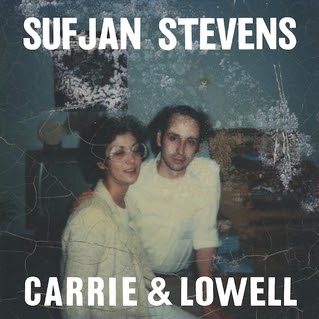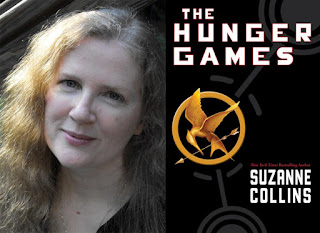BOOK: “Seven Terrors” (2012) by Selvedin Avdić
Thanks Selvedin Avdić. You were the catalyst for a superb discussion at The Westbourne. Our first meeting there following the new found popularity of The Poets Corner - or the Poets Ale and Smoke House as it is now known. Whilst we mourned the passing of Prince, we enjoyed having the public bar to ourselves, as we supped ale, rapped about Tristan's East European selections and grooved to the eclectic musical playlist that seemed to be made just for us.
Tristan, who chose the book, ruefully observed that sometimes the only way to write about something horrible is to do it obliquely. In Seven Terrors we see the Bosnian war of the early to mid-90s glimpsed fleetingly, out of the corner of the eye, like a ghost passing between two worlds. Tristan choose that metaphor carefully, because this is a book in which two worlds are often in contrast, if not in conflict: the living and the dead, the time before a woman leaves a man and after, the pre- and postwar world, the spirit and human worlds, madness and sanity, dreaming and reality, Muslim and Christian, Muslim and atheist. A bar owner, about to thump the drunken and abusive narrator, and relishing the moment, "was shining like a comet separating two epochs". There is even, mundanely, the difference between the way a radio station operated before digital technology, and afterwards. This recurring motif of division and separation, though, is not laboured; it's woven into the book's structure, but Tristan wondered whether it was even intentional. 8/10
Nick felt that Selvedin Avdić was on to something, and not just by way of a metaphor describing a divided country. It's darker than that, with something of the nature of folk story thrown in, too. Seven Terrors is a story that starts off weird and gets weirder, but with the logic and clamminess of a bad dream. It's quite unlike anything Nick had read before, but it has all the consistency and force of something major and assured. That it has room for humour is testament to Avdić's confidence. 7/10
Nigel loved this unexpected gem that he knows will stay with him. An allegorical tale which, whilst ostensibly about a lonely man who has withdrawn from the world and then is forced to reemerge, also confronts the aftermath of the Bosnian war of the 1990s. The fragility of the nameless narrator, as he tries to find an old friend who has disappeared, echoes the fractured post-war world he inhabits. This beguiling 150 page novel packs so much in and, despite dealing with serious matters, is highly readable, and sporadically funny, as it juxtaposes a heady mix of war, myth, popular culture, and the supernatural. It’s profound and very clever. There are layers of subtext and plenty to ponder by the end, not least, at the back of the book where there are further notes and reflections. 8/10
Robin felt a kinship with the unnamed narrator, a former radio journalist, pulling himself out of a nine-month torpor following the departure of his wife. Did his extreme condition owe something to Beckett? Robin fell in love with Mirna, the daughter of an old friend and colleague, Aleksa, who vanished in 1993. Robin also loved Perkman who signifies either hidden treasure or a forthcoming disaster. Aleksa has to find out if he's going mad – to see whether or not anyone believes him. Soon the miners start to shun him; at first, he thinks it's because he's a Serb; but now he's seen the djinn, it seems they think he's bad luck. We are all, a bit Perkman? Yes? Yes yes, yes indeed, most emphatically, smiled Robin, enigmatically, before suggestively sipping his Benchmark ale. 7/10
Keith, gazed at us grim faced. Not good. Not good at all. Yes, so it was a book which managed to weave the mythic horror familiar from legend and modern masters of the fantastic like Bulgakov and Leo Perutz with the horrors of the Balkan war and human cruelty. And, Keith could also dig the idea of an old friend who seems to have disappeared into the mythical underworld. We’ve all needed something to get us out of bed after nine months of bemoaning a wife’s departure. But c’mon, a kind of underworld and two of the most deftly drawn villains of contemporary fiction, the Pegasus brothers? Lovers of death from childhood and ghostly white from head to toe? Do we need this just to understand the way man can become a monster and then man again? Not me, sobbed Keith. 5/10
Hamish highlighted the unsettling nightmare of post-war Bosnia but was left confounded by this work of Gothic genius. The choice to sublimate the actualities of mass burials, and focus on paranormal activity and returning spirits, whilst our hapless protagonist tried to bring love and meaning back into his life, was eerily familiar. 7/10
MUSIC: “Give” (2011) by Balkan Beat Box
Tristan 5/10
Hamish 5/10
Keith Political Fuck
Robin, he no listen to no stinking Balkan Beat Box
Nick, a load of Balkans
Nigel, bit of Congo Natty, Gogol Bordello & Major Lazer
Must try harder seemed to be the consensus
FILM: “No Man's Land (Bosnian: Ničija zemlja)” (2001) directed by Danis Tanović
Everybody loved this 2001 war film that is set in the midst of the Bosnian war. The film is a parable and marked the debut of Bosnian writer and director Danis Tanović. It is a co-production among companies in Bosnia-Herzegovina, Slovenia, Italy, France, Belgium and the UK. The film won the Oscar for Best Foreign Language Film in 2001.
ENDORSE IT
Here's what we're currently endorsing...
Tristan: Whitechapel (TV series)
Hamish: Perdido Street Station by China Miéville
Keith: Nottingham's Galleries of Justice
Robin The Durrells (TV series)
Nick Julia Davis' Camping (TV series)
Nigel:
People vs OJ Simpson (TV series)
Breakdown podcast - Justin Ross Harris case
The Limiñanas “Malamore" LP
“Jumpin’ Jack Flash: David Litvinoff and the Rock'n'Roll Underworld” by Keiron Pim
And on that note we bade each other farewell and rode off into the night.
Adios amigos. Hasta la vista



















